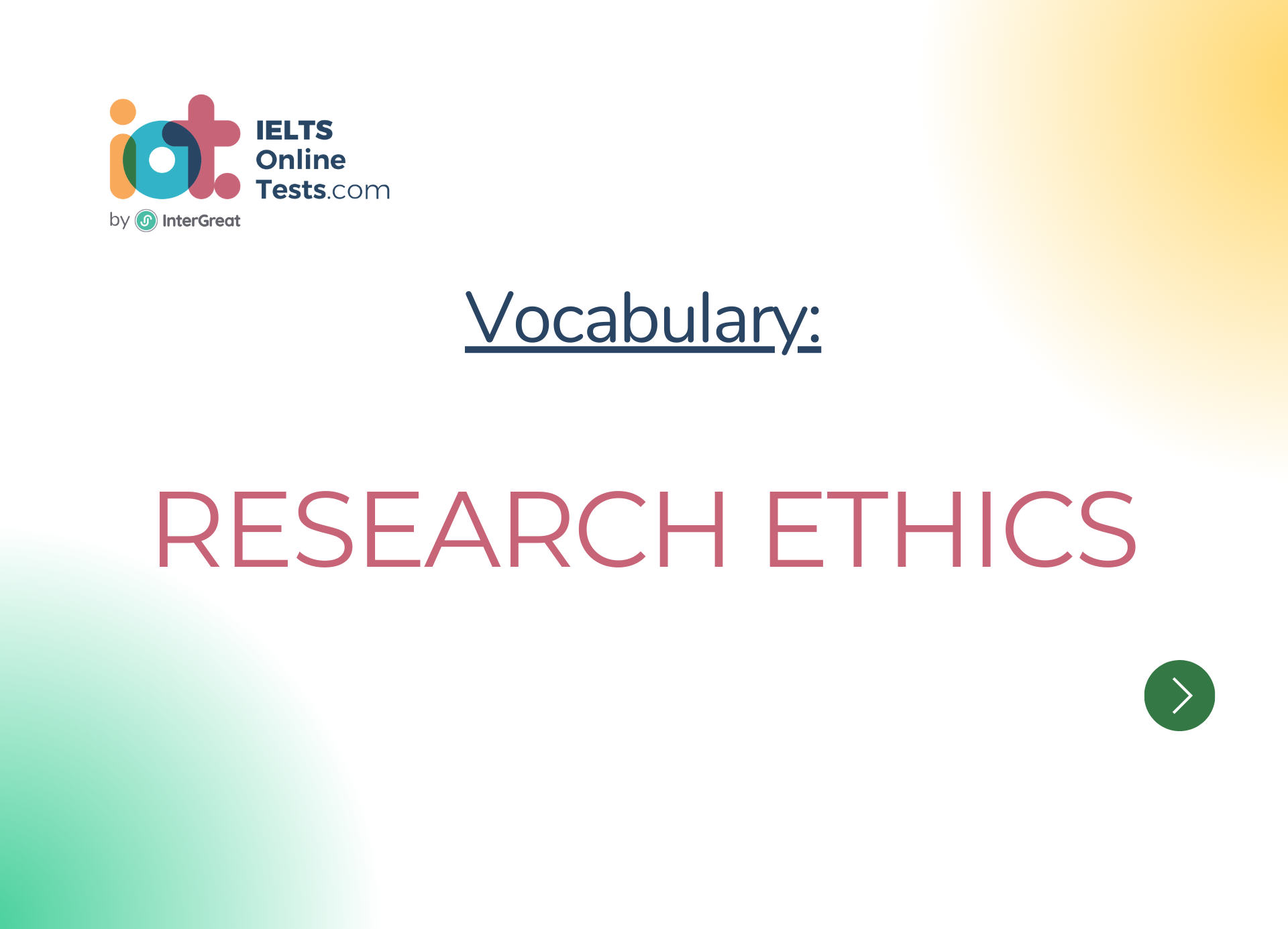
Research ethics
Here are some vocabulary words related to research ethics for the IELTS band score range of 4.5-6.0:
Informed Consent
The process of obtaining voluntary agreement from research participants after providing them with relevant information about the study's purpose, risks, and benefits.
Confidentiality
Ensuring that the identities and personal information of research participants are kept private and protected.
Anonymity
Keeping the identities of research participants completely unknown and unidentifiable to anyone, including the researcher.
Research Protocol
A detailed plan outlining the research design, objectives, methodology, and procedures, including ethical considerations.
Ethics Committee
An independent body that reviews and approves research studies to ensure they comply with ethical guidelines.
Institutional Review Board (IRB)
A committee responsible for reviewing and approving research proposals involving human subjects.
Human Subjects
Individuals who participate in research studies or experiments.
Vulnerable Populations
Groups that may be at higher risk of harm or exploitation during research, such as children, prisoners, and individuals with cognitive impairments.
Deception
Deliberately withholding information from research participants to maintain the study's integrity, with appropriate debriefing afterward.
Risk-Benefit Analysis
Assessing the potential risks and benefits of a research study to ensure that the benefits outweigh any potential harm.
Coercion
Pressuring or influencing participants to take part in a study against their will.
Data Fabrication
Making up or falsifying research data instead of collecting actual data from the study.
Plagiarism
Using someone else's work, ideas, or words without proper acknowledgment or citation.
Conflict of Interest
A situation where a researcher's personal or financial interests may compromise the objectivity and integrity of the research.
Research Misconduct
Serious violations of research ethics, including data falsification, plagiarism, and unethical behavior.
Ethical Dilemma
A situation where there are conflicting ethical principles, making it challenging to determine the best course of action.
Beneficence
The principle of maximizing benefits for research participants and minimizing potential harm.
Non-maleficence
The principle of avoiding harm to research participants and ensuring their well-being.
Respect for Autonomy
Respecting the rights of research participants to make informed decisions and exercise free will.
Justice
Ensuring fairness in the distribution of research benefits and risks among participants.
Institutional Affiliation
The organization or institution to which the researcher belongs and where the study is conducted.
Voluntary Participation
Ensuring that research participants willingly choose to take part in the study without any coercion.
Withdrawal Rights
The right of research participants to leave the study at any time without facing any consequences.
Inclusion Criteria
The specific characteristics or conditions that qualify individuals to participate in a research study.
Exclusion Criteria
The specific characteristics or conditions that disqualify individuals from participating in a research study.
Informed Assent
Obtaining agreement to participate in research from individuals who may not fully comprehend the research but can provide their willingness to participate.
Research Integrity
The adherence to high ethical standards and principles in the design, conduct, and reporting of research.
Data Privacy
Ensuring that research data are securely stored and only accessible to authorized personnel.
Research Compliance
Following the established rules, regulations, and ethical guidelines governing research.
Research Misconduct
Intentional or grossly negligent behavior that undermines the integrity of research, such as fabrication of data, plagiarism, or unethical practices.
Participant Well-being
The responsibility of researchers to prioritize the health and safety of research participants.
Publication Ethics
Ethical considerations related to the dissemination of research findings through academic journals or other publications.
Dual Use Research
Research that may have both beneficial and harmful applications, such as studies involving sensitive information or potentially dangerous technologies.
Informed Withdrawal
The process of providing participants with information about their right to leave the study at any time and without prejudice.
Research Accountability
The responsibility of researchers to be transparent and accountable for their research methods and findings.
Remember to practice using these words in context and familiarize yourself with the ethical guidelines relevant to research studies. Ethical considerations are crucial in conducting valid and reliable research while safeguarding the rights and well-being of research participants. Good luck with your IELTS preparation!




